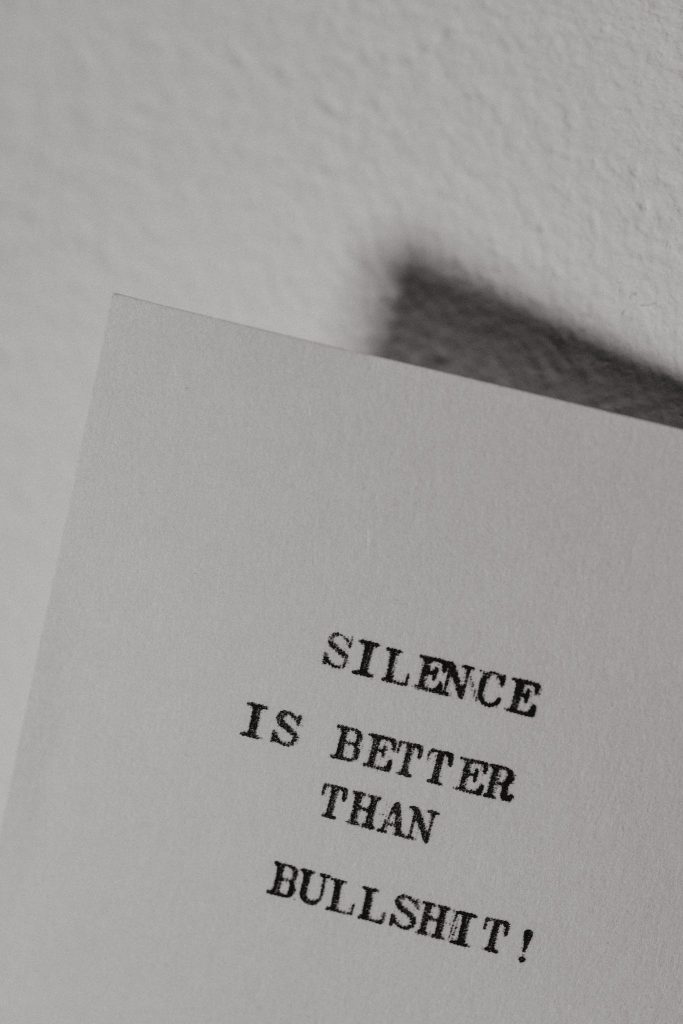Friends, family, coworkers, and even strangers vie for our time and energy, often leaving us overwhelmed and exhausted. Yet, learning to say no and set boundaries is crucial to living a happier, more fulfilling life. In this blog post, we’ll explore the importance of setting boundaries, the benefits of protecting your energy, and practical tips on how to say no with grace and confidence.
The Importance of Setting Boundaries
In today’s fast-paced and demanding world, it can be difficult to resist the temptation to say yes to everything. We may feel obligated to please others, meet their expectations, or take on new challenges, even when it’s not in our best interest. However, learning how to say no is an essential skill for developing discipline and living a balanced and fulfilling life.
- Preserving Personal Energy: Our available energy is a limited resource. Saying yes to everything that is asked of you puts you under strain and increases your chance of burnout. Establishing boundaries enables you to save your energy for the things that are most important to you, like your relationships, hobbies, and self-care.
- Preventing Resentment: Agreeing to requests all the time can cause anger and aggravation, particularly if the task is something you are not really interested in doing or if it takes priority over your own needs. On the flip side, saying no promotes more beneficial relationships and helps you keep a healthier balance in your life.
- Encouraging Personal Growth: By establishing limits, you make room for your own progress. Prioritizing your needs and making time for enjoyable activities will help you grow in self-awareness and have a better grasp of who you are.
In today’s fast-paced and demanding world, it can be difficult to resist the temptation to say yes to everything. We may feel obligated to please others, meet their expectations, or take on new challenges, even when it’s not in our best interest. However, learning how to say no is an essential skill for developing discipline and living a balanced and fulfilling life.
How to Say No Effectively
- Be direct and honest. Don’t beat around the bush or try to make excuses. Simply say no and explain your reason briefly, but firmly.
- Be assertive. Avoid using apologetic language or sounding unsure of yourself. Speak with confidence and conviction.
- Be respectful. Even if you’re saying no to someone you care about, be sure to do so in a polite and respectful manner.
- Offer an alternative. If possible, offer an alternative solution to the person who is asking you for something. This can help to show that you’re still willing to help them, even if you can’t do it in the way they originally requested.
The Cost of Yes
Sometimes, answering “yes” comes naturally, whether it’s to appease people, steer clear of trouble, or satisfy a fear of missing something. But every “yes” has a price: it takes up time, effort, and resources that could be used in other ways. These obligations can have an overwhelming cumulative impact that leaves one with a busy schedule, a tired body, and anxiety in the mind.
The Clarity of No
In contrast, saying “no” is a clear declaration. It draws the lines defining your capabilities and the shapes of your priorities in life. In essence, you are choosing how best to use your time and energy when you say “no.” It’s an acceptance that you can’t accomplish everything and that’s alright.
Saying no may be an effective strategy for communicating our needs and ideals as well as for asserting oneself. It can also assist us in focusing on our priorities and avoiding taking on too much. Saying no in a respectful way shows character strength and self-respect.
Here are some instances where being able to say no can be advantageous:
- If a student is already feeling overburdened, they could decline to take on further work.
- If a parent is on a tight budget, they may refuse their child’s request for a new toy.
- If an employee has an earlier commitment, they may decline their boss’s request to work overtime.
- If a person needs to spend time with their family or is feeling fatigued, they may decline a friend’s request to go out.
- The person is protecting their own wants and priorities in each of these situations by refusing. They are just communicating their boundaries and being forceful; they are neither being impolite nor selfish.
Although it can be challenging, everyone needs to learn how to say no. We can have more balanced and satisfying lives if we can learn to say no.
It’s okay to say no. If you’re not comfortable with something, don’t do it. You don’t owe anyone an explanation.
Anonymous
You see, the word “no” is more than simply two characters; it’s a declaration of independence, a boundary, and a statement. It’s about taking charge of your time and acting like the boss you are. And when executed properly, saying “no” can feel like donning a superhero cape and flying above the mayhem.

so how do you serve up a ‘no’ without feeling like the Grinch? It’s all about the delivery, honey. Sprinkle a little sugar on it — not too much, just enough. Be clear, be kind, and don’t waffle. Most importantly, remember that ‘no’ is a complete sentence. You’re not in court; no one needs an explanation.
Saying no can be difficult at first, but it becomes easier with practice. Remember, you have the right to set boundaries and protect your time and energy. By learning to say no effectively, you can develop discipline, improve your productivity, and live a more balanced and fulfilling life.




